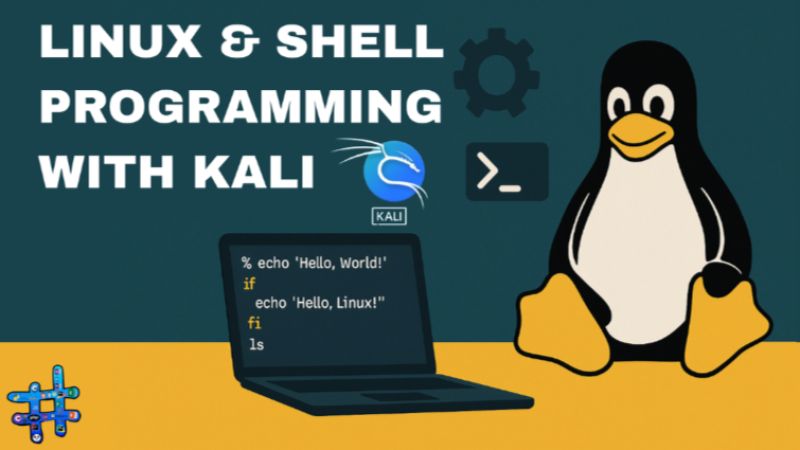Linux & Shell Programming – Course Syllabus
Duration: 60 Days | Mode: Theory + Practical | Level: Beginner to Intermediate
Unit 1: Introduction to Linux
- Overview of Linux and its distributions
- Logging in and out of the system
- Changing user password using passwd
- Introduction to help commands: man, xman
- Basic terminal usage
Unit 2: File System & Permissions
- Directory navigation: pwd, cd, ls, etc.
- File and folder operations: mkdir, cp, mv, rm
- File types and path management
- Understanding file permissions: r, w, x
- Modifying permissions using chmod, chown, umask
Unit 3: Text Editing with Vi Editor
- Vi editor modes: command, insert, visual
- File creation, editing, saving and exiting
- Insertion, deletion, search and replace
- Advanced features: line numbers, macros, navigation commands
Unit 4: File I/O and Advanced Editing
- Reading and writing files
- File redirection: >, >>, <, |
- Using .exrc file for editor customization
- Automating edits with scripting commands
- Advanced file handling techniques
Unit 5: Introduction to X-Window System
- Overview of the X-Windows graphical environment
- X as a Client-Server model
- Components: display server, window manager
- Using graphical tools like xclock, xcalc
Unit 6: Shell & Command Line
- What is a Shell? Importance in Linux
- Types of shells: Bash, Csh, Ksh, etc.
- Shell environment and startup files (.bashrc, .profile)
- Using the command line effectively
- Introduction to piping and redirection
Unit 7: Shell Scripting (Bash)
- Basics of writing and executing shell scripts
- Declaring variables and taking user input
- Conditional statements: if, else, elif
- Loops: for, while, until
- Command grouping and background execution
Unit 8: Advanced Shell Programming
- Functions in shell scripts
- Control structures: case, select
- The Here Document (<<)
- Handling NULL and unset variables
- Script debugging and best practices
Unit 9: System Tools & Source Control
- Command history, aliases, and job control
- Filename substitution and pattern matching
- Introduction to awk, sed utilities
- Basics of version control using RCS and CVS
- Source code management utilities
Final Project & Evaluation
- Weekly practice tasks and mini assignments
- End-of-course project using shell scripting
- Internal test / lab assessment
- Course completion certificate
